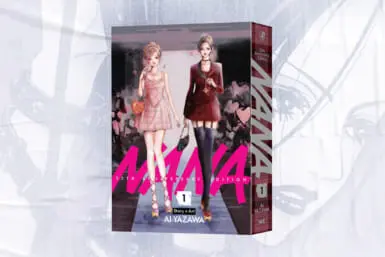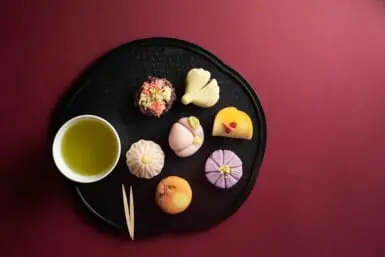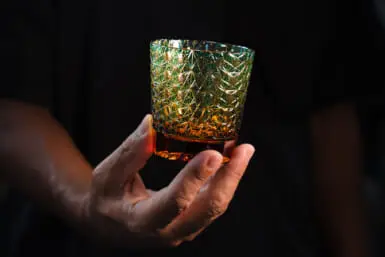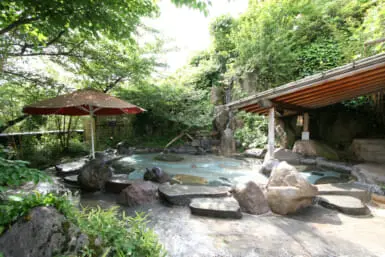by JAMES BAILEY
Heard and good ones lately? How about bad ones? I’ve got a million of ’em. Like, what does a naked man drink? Or, what drink is best enjoyed while seated on the toilet? Or—but first, a word of explanation.
Japan – which goes through fads the way a hay fever sufferer goes through boxes of Kleenex, which one month is crazy about pandas and the next month about the “Mona Lisa” and the month after that about kung fu films—recently was caught up in a buumu (boom) that may have escaped the attention of most foreign residents.
What captured the collective imagination of our host country are called nazonazo, or riddles. They appeared for a time with numbing regularity in everything from the staid monthlies to the film fan mags to the nudefilled Playboy imitations. Two books containing nothing but nazonazo made the bestseller lists.
Like the American ”Little Morons,” these riddles are nonsensical and sometimes utilize excruciatingly painful puns. Some are exactly like the ones we told as kids. In one collection, I came across the old chestnut: “What goes in hard and dry and comes out soft and wet?” (The answer, for those of you who had sheltered childhoods, is “chewing gum.”) Who says “never the twain”?
Most, however, you’ve probably never heard before and quite possibly may never want to hear again. Whether or not they prove that the Japanese have a well-developed sense of humor is for you to decide. Weekender readers expecting to be stricken helpless with mirth are advised that those who’ve already read this article feel it should be classified as “informative” rather than “amusing.” But remember, folks, I didn’t write these riddles—I only translated them.
Q. An osama is a kingu (king), but what is a naked osama?
A. A sutorikingu (strea-king). Well, if that one didn’t put you off, let’s continue.
Q. Not too long ago, a Japanese rock group. The Down Town Boogie Woogie Band, released popular song entitled, “Sumookingu Boogi” (“Smoking Boogie”). Whom was this song about?
A. A yokozuna. You sports fans know that this is the highest ranking a sumo-seki can attain. You might say that a yokozuna is a sumoo kingu (a sumo king). All right, all right. I promise the next king riddle will be the last.
Q. Several kings got together for a chat. How many were there?
A. Ten. In this case, ten is to, which together with kingu, gives us to kingu (talking, in Japanglish).
Q. How old was Beethoven when he became a certifiable musical genius?
A. Ten. Unlike the previous riddle, ten is ju; ten years of age is jusai; genius is tensai. Ju, ten. Wakarimasu ka?
Q. What European city is famous for its large population of twins?
A. Frankfort. A frankfort is a soseiji (sausage) and soseiji are twins.
Q. A young girl gets on an elevator. Does it go up or down?
A. Up. To go up is agaru; a gaaru is a girl.
Q. The population of which country is composed entirely of infants?
A. New Zealand, or Nyujiirando. Nyuji is another word for akachan, or baby.
Q. Where did the Lone Ranger’s partner go?
A. I haven’t the slightest idea. Or, in Nihongo, tonto wakaranai.
Q. What sound does mama make when she fails down?
A. Splat!, or kaachan! Kaachan is just a less informal way of saying okaasan (mother).
Q. What whiskey does one drink every day?
A. Nikka, which can mean daily.
Q. What is the most beautiful fish in the world?
A. The sole, or karei. Karei, written with different kanji, means magnificent.
Q. Which American rock group, to judge by its name, can’t decide whether it has four members or five?
A. Chicago. Shi ka go means four or five.
Q. What kind of establishment is noted for its sharp appearance?
A. A steak house, or suteki hausu. Suteki can also mean outtasight.
Q. What fowl lives on a hill?
A. A duck, or ahiru. A “him” is a hill.
Q. A man who looked exactly like Christ was asked if he was, in fact, Christ. What did he reply?
A. Iesu, which is the local pronunciation of both yes and Jesus.
Q. A boy, after buying some candy, burst out laughing. Why?
A. Because he bought some candy (okashi katta). Okashikatta means “it was funny.”
Q. What is the favorite drink of people who think doctors godlike?
A. Doctor Pepper (dokuta peppa). “Peppa” is very similar to peipaa, the Japanese pronunciation of paper. Paper, in Japanese, is kami; kami can also mean god. Hence, dokuta peppa (doctors are gods). I should point out here that many Japanese find the reasoning behind some of these riddles as circuitous as you do. Also, you should keep in mind that many of the answers are not examples of correct grammar A) only approximately “means” B), but they are, to most Japanese, understandable.
Q. In nearly every Japanese household, there is at least one appliance manufactured by the Matsushita Electric Co. What word best describes this phenomenon?
A. Nationalism. Matsushita appliances bear the brand name Nashonaru (National).
Q. When is a k-i-s-s only a k-s-s?
A. When it lacks love, or ai (i).
Q. What American state frowns on love affairs?
A. Georgia, or Jojia. Joji iya means love affairs are disgusting.
Q. Which rock group is older – Chicago or Free?
A. Free, or furii. Furui means old.
Q. What animal loves everybody?
A. The mule, or raba. And I’m sure you remember the old song, “Rabaa come back to me.”
Q. You and I, the best of friends, frequently use this word to describe our relationship. What is it?
A. Friendship, or yuai (you-I).
Q. In what American state is it always morning?
A. Ohio, or ohaiyo, as in ohaiyo gozaimasu (good morning).
Q. What American state is famous for its waterworks?
A. Missouri, or Mizurii. Mizu uri means to sell water.
Q. For what job is the ability to flatter an essential qualification?
A. That of politician, or seijika. Oseijika is a flatterer.
Q. What English singer loves overseas trips?
A. John Lennon who, as everyone knows, is crazy about Yoko (Ms. Ono’s first name and Japanese for a trip abroad).
Q. Which rock group releases nothing but good albums?
A. Emerson, Lake and Palmer, or ELP. or ii eru pi, or ii LP (good LP).
Q. Who is better looking – a pitcher or a catcher?
A. A catcher, because pittcha wa mittomonai, which can mean a pitcher doesn’t have a mitt, or a pitcher is shabby.
Q. In which country do only quick-tempered people live?
A. In Cuba, or Kyuuba, which is always in a state of crisis (kyuuba).
Q. In which city do representative of all the nations of the world meet?
A. In Bangkok, or bankoku, which means all nations.
Q. To judge by his name, this historical figure never existed. Who was he?
Q. Lenin, or Reinin. Rei means zero and nin means person.
Q. The rhythm and blues capital of the world?
A. Seoul.
Q. A fat sinner would be perfect for the lead in what musical?
A. Uesuto Saizu Sutorii (Waste Size Story).
Q. What is the most solitary of all intellectual pursuits?
A. The study of logic, or ronrigaku. Ronrii, as you might guess, is lonely.
Q. What is the perfect profession for someone with no teeth?
A. That of comic storyteller, or rakugo. If you ever watch TV variety shows, you’ve probably seen these kimono-clad gentlemen kneeling on zabuton (cushions) and telling stories replete with voice changes and wild gesticulations. Another word for rakugo is hanashika. Ha nashi means no teeth; ka means person.
Q. What is the worst month for the Giants baseball team?
A. August, or Ogasuto. Oh ga suto same pronunciation means Oh (first baseman Sadaharu Oh) is on strike. Anyone who has persevered this far deserves a small reward, so I shall let you take a peek at my collection of ever so slightly off-color nazonazo.
Q. A very hungry couple went to a love hotel. As soon as they checked into their room, what did the young man have to eat?
A. No, wait a minute, wait a minute. Not that. He had some bread and tea. This requires a bit of explanation. In Japanese, torn can mean to have something to eat or to remove, so the riddle can be interpreted in two ways: What did the young man have to eat?, or What did he remove? Bread is pan; tea is simply tel. Together – pantei (panties).
Q. Men become stimulated when they play a certain musical instrument. What is it?
A. The electone, or erekuton. With very little imagination, I’m sure you can figure out that erekuto suru means to become a very upstanding person.
Q. What are in England is famous for its large population of ladies and gents who’ve undergone sex change operations?
A. Essex, or Esekkusu. Ese means false; sekkusu is, of course, sex. Together false sex.
Q. What is the name of the city in China where only ten men live?
A. Tientsin. China’s third largest city, pronounced Tenchin. Chin is Japanese for the male sexual organ. So, in Tientsin, one can find only ten chin.
Q. Five hundred senior high school girls were going to school one day when they were met by a young man. What did he say to them?
A. “Seniors!” or senpai. Sen means one thousand; oppai means tits. Thus, senpai, in this case, can be taken to mean “One thousand tits!”
Q. What American singer’s genitals are extremely sensitive to cold weather?
A. Paul Anka, or pooru anka. An anka is a portable bed or foot warmer. The addition of pooru (slang for the male organ) transforms anka into a heater for the man who has everything.
Q. There is a drink that is best enjoyed while seated on the toilet. What is it?
A. Powdered juice, or funmatsu jyuusu. Fun is excrement; matsu is to wait for. Therefore, this juice is drunk while waiting on the john.
Q. A young man decided to take a short to a place noted for its ready girls. As he also wished to be when did he decide to leave?
A. He decided to depart in the morning, or asadachi. Asadachi also means morning erection.
Q. Name the play by Shakespeare dealing with the selling of men for immoral purposes.
A. The Japanese title of The Merchant of Venice is Benisu no Shonin. With a very slight adjustment, this can be turned into Penisu no Shonin (The Merchant of Penis).
Q. A father wrote his married daughter asking if her husband unsuccessful in several previous efforts to impregnate her had finally gotten It all together. Rather than replying in the affirmative with a letter, what did she send her father?
A. A condom, or kondoomu. Kondo umu means “shortly I’ll give birth.”
Q. What will happen if you have sex with a hairy woman?
A. You’ll get is to get hurt.
Q. What does a girl whose mouth is constantly watering want?
A. Vinegar, or osu. Osu can also mean male.
Q. What does a naked man prefer to drink?
A. Brandy, or burande. You are asked imagine that the word burande is formed with buran of buranto (to dangle limply) and the de of dete iru (to stick out or protrude).
Q. Karuizawa has recently acquired a reputation as being a rather immoral place. Why?
A. Because it is a health resort, or hoyoji. A hoyoji is a place for necking.
Q. In the garden of a boys school (enrollment: 1000), there grows but one kind of flower. What is it?
A. The pot marigold, or kinsenka. Kin means the male “thing”; sen means one thousand; ka means flower (the thousand joint flower).
Q. If you’ve been in Japan for only a short time, you’re probably already aware that something or someone lewd is termed “H” or eitchi (according to Jack Seward’s Japanese in Action, this is “an abbreviation for hentai-sei,” or aberrant sex). Now, what do you wear before you do something eitchi?
A. Jeans. In Japanese, jeans are G-pan. and G comes before H.
Q. Whenever five boys get together, there’s one vegetable they can’t help but eat. What is it?
A. A burdock, or gobo. Go means five; bo means stick, which can be misinterpreted by cit minded people.
Q. A young man was headed for a motel with his sweetie when she suddenly said. “Not tonight, honey.” What kind of car was he driving?
A. A Celica. In order for the pun-ch line to work here, you must imagine that the young man asked his girl friend a question. Celica is serika; a monthly period of distress is seiri which, with the interrogative ka, gives us Seiri ka? (Are you sickie, toots?)
And so on and on and on.
Updated On April 26, 2021







